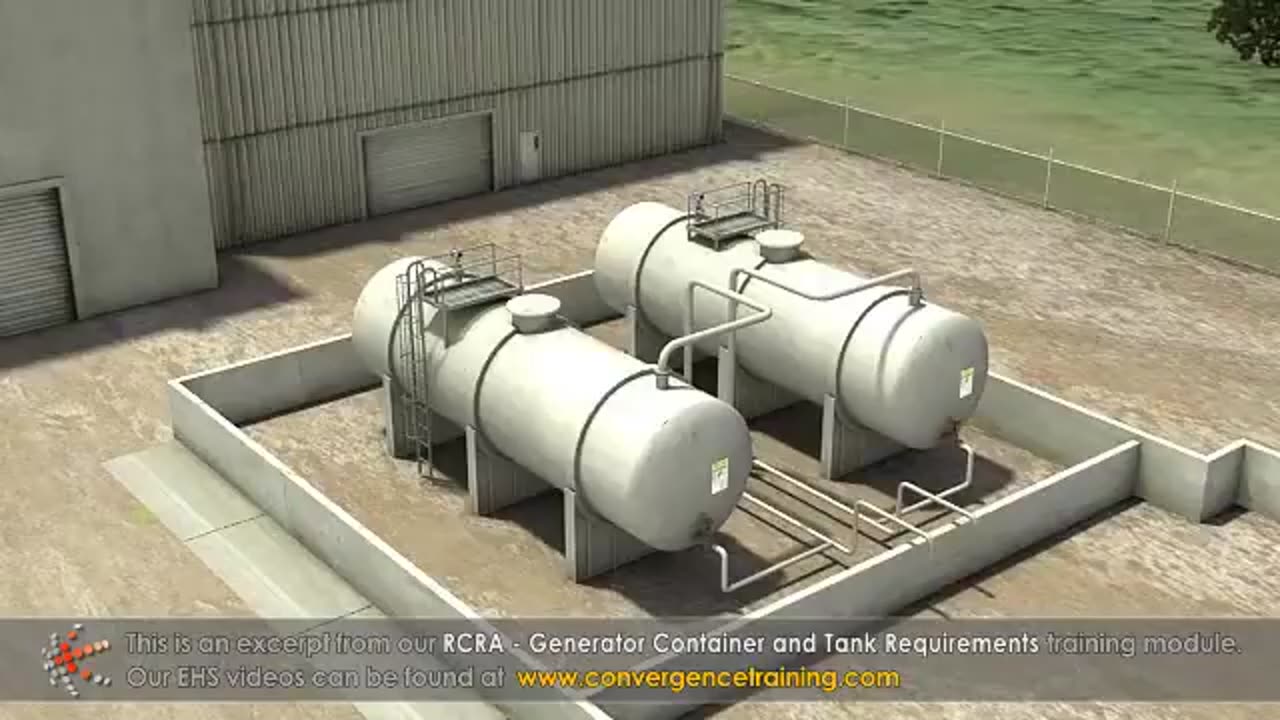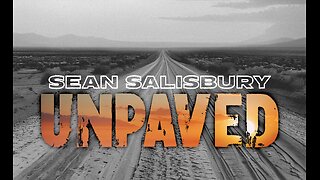Premium Only Content

RCRA - Generator Container and Tank Requirements Training
**RCRA Generator Container and Tank Requirements Training** focuses on educating employees about the proper handling, storage, and management of hazardous waste containers and tanks. This training ensures compliance with RCRA regulations while minimizing risks to health, safety, and the environment. Below is a comprehensive training outline:
---
### **1. Introduction to RCRA and Generator Responsibilities**
- Overview of RCRA regulations and generator categories (LQG, SQG, CESQG).
- Importance of compliance for environmental protection and legal obligations.
- Responsibilities of hazardous waste generators regarding container and tank management.
---
### **2. Container Requirements**
- **Labeling and Marking**:
- Properly labeling all containers with "Hazardous Waste" and accumulation start dates.
- Using labels that include waste type, EPA waste codes, and hazards.
- **Condition of Containers**:
- Ensuring containers are in good condition (no dents, rust, or leaks).
- Prohibiting use of damaged or corroded containers.
- **Compatibility**:
- Storing waste in containers compatible with the waste type.
- Avoiding reactions between waste and container materials.
- **Storage Area Standards**:
- Keeping containers closed unless adding or removing waste.
- Using secondary containment for spill prevention.
- Separating incompatible wastes.
- **Inspections**:
- Conducting weekly inspections of container storage areas.
- Checking for leaks, overfilled containers, and proper labeling.
---
### **3. Tank Requirements**
- **Tank Design and Construction**:
- Ensuring tanks meet RCRA design standards for hazardous waste.
- Using appropriate materials to prevent reactions or leaks.
- **Operating Requirements**:
- Installing level indicators, alarms, and pressure relief systems.
- Maintaining freeboard (space) to prevent overflow.
- **Secondary Containment**:
- Constructing dikes or berms to contain spills or leaks.
- Using double-walled tanks for added protection.
- **Inspections**:
- Daily inspections of tank systems (e.g., corrosion, cracks, monitoring equipment).
- Verifying leak detection systems are functional.
- **Air Emissions Standards**:
- Complying with Subpart CC of RCRA for air emissions from tanks.
- Installing vapor control systems if required.
---
### **4. Accumulation Time Limits**
- **Time Limits by Generator Category**:
- Large Quantity Generators (LQGs): 90-day limit for accumulation.
- Small Quantity Generators (SQGs): 180 days (or 270 days if >200 miles from disposal site).
- Consequences of exceeding accumulation time limits without proper permits.
- Procedures for requesting extensions if needed.
---
### **5. Spill and Leak Response**
- Recognizing and addressing container or tank leaks.
- Steps for containment, cleanup, and reporting spills.
- Proper disposal of cleanup materials as hazardous waste.
- Importance of keeping spill kits readily available.
---
### **6. Documentation and Recordkeeping**
- Maintaining inspection logs for containers and tanks.
- Documenting waste accumulation start dates and labels.
- Retaining records of spill incidents and corrective actions.
---
### **7. Common Violations and Best Practices**
- Examples of non-compliance (e.g., unlabeled containers, open containers, overfilled tanks).
- Best practices for container and tank management:
- Using compatible secondary containment.
- Training employees to handle waste safely.
- Establishing clear procedures for inspections and maintenance.
---
### **8. Training and Certification**
- Who requires training (employees involved in waste generation, storage, and management).
- Annual refresher training for compliance.
- Providing certificates upon successful completion.
---
### **9. Closing and Q&A**
- Recap of container and tank management responsibilities.
- Open discussion for addressing facility-specific concerns.
- Distribution of handouts, checklists, and resources for ongoing compliance.
---
**Optional Materials**:
- **Inspection Checklists**: Customized for containers and tanks.
- **Training Slides**: Visual aids for presentations.
- **Quizzes**: To test understanding of key concepts.
- **Emergency Response Scenarios**: Hands-on practice for spill and leak response.
Would you like help creating specific materials like checklists, visuals, or customized training modules?
-
 6:43
6:43
HSESafetyInformation
1 month agoLahori Chanay Recipe - Lahori Cholay Recipe - Chana Chana Masala
38 -
 1:09:50
1:09:50
Sean Unpaved
3 hours agoFinal Four Showdown Predictions with Former Coach Fran Fraschilla To Join!
18.5K2 -
 2:35:29
2:35:29
Nerdrotic
6 hours ago $3.21 earnedNerdrotic Nooner 477 w Chris Gore
38.2K7 -
 1:16:44
1:16:44
Mike Rowe
8 days agoGary Sinise Shares the Lessons He Learned From His Late Son, Mac Sinise | #429 | The Way I Heard It
30.8K7 -
 1:02:24
1:02:24
Timcast
3 hours agoGOP CRUSHED In Wisconsin, Trump Impeachment FEARED After Dems Win, Voter ID PASSES
147K143 -
 2:05:58
2:05:58
Steven Crowder
6 hours ago🔴 Why the Deported El Salvador Father Story Is One Huge Media Lie!
401K271 -
 58:31
58:31
The Rubin Report
4 hours ago‘The View’s’ Whoopi Goldberg Shocks Crowd by Going Even Further Left
72.8K117 -
 19:10
19:10
Neil McCoy-Ward
2 hours ago🔥 While Υοu're Working HARD, They're ΡLΑNNING To ΤΑKE Everything From Υou!
28.8K5 -
 12:01
12:01
IsaacButterfield
10 hours ago $0.16 earnedThe Worst Of Gen Z TikTok
11.1K10 -
 8:52
8:52
RTT: Guns & Gear
11 hours agoThe Most Customizable EDC IWB Holster? Werkz Holsters Bisect
15.5K1